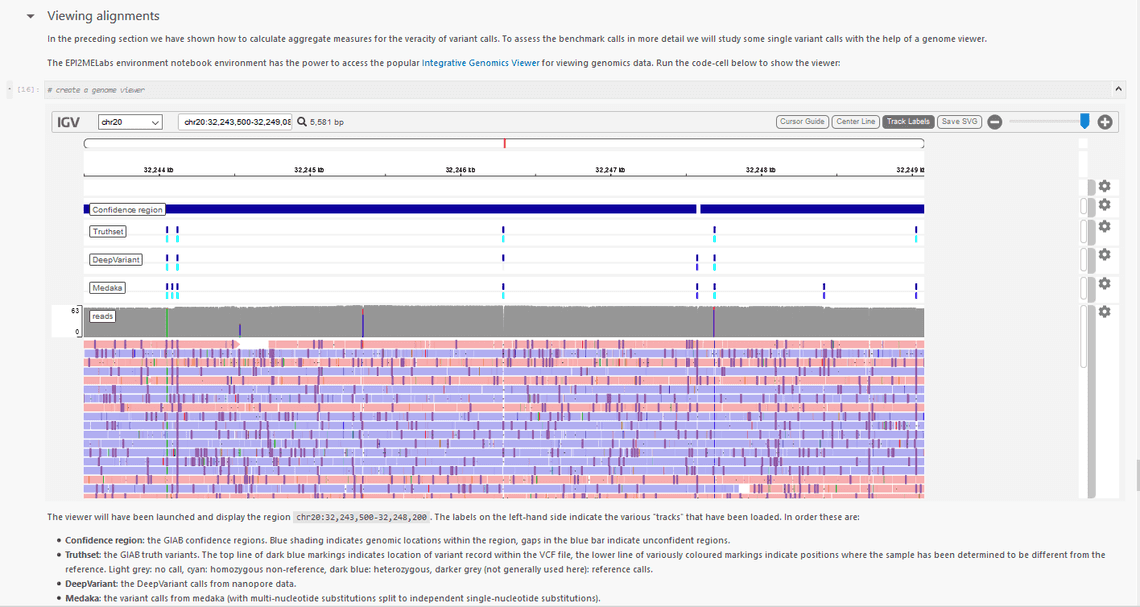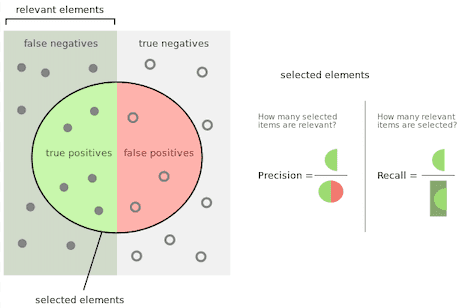EPI2ME Labs 20.11 Release
We are pleased to introduce a new release of our EPI2ME Labs.
We are delighted to introduce new tutorials, updated functionality, and cleaner aesthetics with our 2020-11.01 release of EPI2ME Labs. This is available immediately, a new LabsLauncher is available on the downloads page.
In this release we have include IGV.js. IGV is a leading track-based genome browser. Bringing interactive genome browsing into our notebooks enables clearer illustration of results and opens new possibilities for customer developed interactive applications. The JupyterLab IGV extension is available as a standalone component outside of EPI2MELabs.

Figure 1. Representation of the SNP benchmark tutorial that shows an IGV view of the genome and the variants contained within. Bringing this popular genome viewer into notebooks makes data interpretation more intuitive.
The 2020-11.01 update integrates also new benchmarking tutorials with our recent s3://ont-open-data releases. These benchmark tutorials help users replicate our performance metrics and demystify the steps involved in benchmarking SNP and SV detection performance.
A benchmarking analysis of human structural variants is illustrated using SVs called from our GM24385 dataset using the updated pipeline-structural-variation v2.0.2 software. This tutorial introduces the SV truth sets maintained by the Genome in a Bottle consortium and demonstrates a workflow for measuring performance and visually assessing apparent false-positive SVs.
The same GM24385 dataset is also used for benchmarking our performance in identifying human single nucleotide variants with a workflow based on Medaka and DeepVariant. Further analysis of the called variants illustrates the challenges of identifying SNVs in various genomic contexts.

Figure 2. The benchmarking tutorials included in this release use known and validated datasets to assess the performance of methods used to identify SNPs and SVs. The tutorials introduce the scoring of true positives, false positives and false negatives. The tutorials demonstrate the calculation of precision and recall using appropriate software packages.
Bug fixes and improvements to the core EPI2ME Labs environment include:
- Numerous minor fixes and amendments to notebooks.
- Fixed the export of graphs produced in notebooks running on macOS.
- Improvements to the handling of the Pavian webservice used in our metagenomics notebook.
- Updates to the caching and storage of notebooks allows for simpler .ipynb support.
- Aesthetic changes to make the Jupyter server experience a little less orange.
We hope that you find these updates useful. The EPI2ME Labs team would love to collaborate in the development of new workflows that showcase your software and we would welcome recommendations for new tutorials and notebooks.

